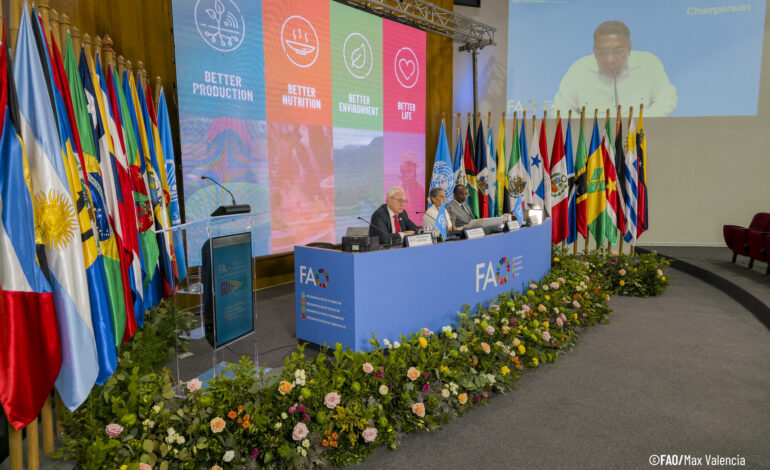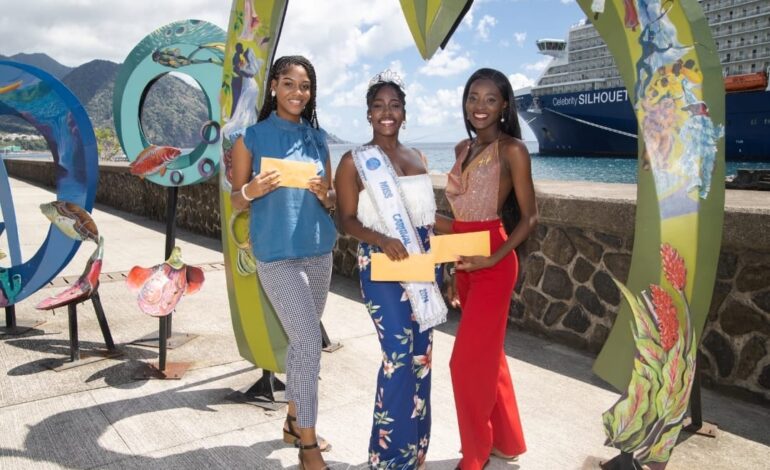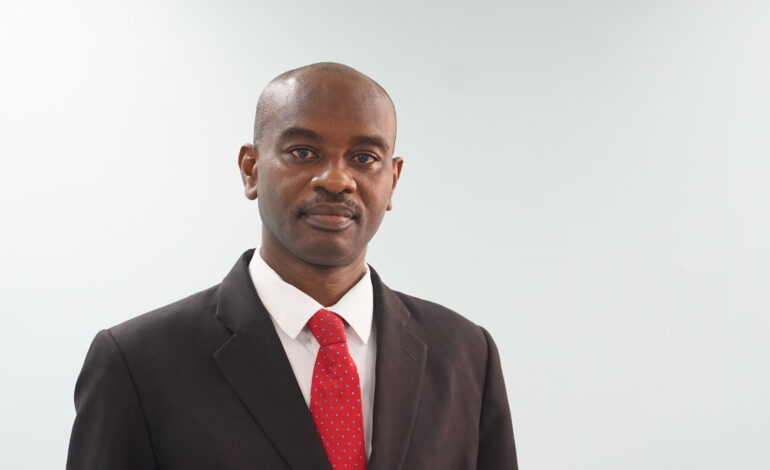
Ministers and vice ministers from all the Region’s countries participated on-site in the opening ceremony in Guyana.
March 18, 2024, Georgetown, Guyana – The 38th Regional Conference of the Food and Agriculture Organization of the United Nations (FAO) began today in Georgetown, Guyana, with the presence of Ministers and Vice Ministers from all the countries of Latin America and the Caribbean at the Arthur Chang Conference Centre.
The President of Guyana, Mohamed Irfaan Ali, and the Director-General of FAO, QU Dongyu, inaugurated the meeting.
“You have big potential to accelerate progress and to do even more with less within and outside your region,” said QU, noting the Region boasts a large share of the world’s biodiversity and water resources and accounts for 13 percent of global food production and 45 percent of net international trade in agrifood products. He also noted that, although the Region is a net food exporter, the reliance on commodity imports and exports exposes its agrifood systems to macroeconomic volatility, global geopolitical instability, and climate change, which in turn negatively impact food prices and incomes and lead to unfavorable food security and nutrition outcomes.
Mohamed Irfaan Ali, President of Guyana, said that creating resilient and climate-protected agrifood systems is an imperative task going forward, and “decision making must be data driven as far as possible,” he said. He also called for a greater focus on nutrition, calling for a shift “back to the bowl from the box.”
During the ceremony, Xiomara Castro, President of Honduras, as President pro tempore of Community of Latin American and Caribbean States (CELAC), sent a message through a video highlighting the approval of the CELAC plan for Food Security, nutrition, and eradication of hunger. “Although the approval of this plan marks a significant milestone, the real challenge lies in its effective implementation by our governments. In this regard, the FAO Regional Conference offers us an invaluable opportunity to examine the actions required, our capacities and needs carefully”.
Also, Inacio Lula da Silva, President of Brazil, as President pro tempore of G-20, sent a letter to address the Conference. “We cannot compromise with hunger. It is necessary to act with determination and speed, which is why we have chosen the issue as one of the priorities of the Brazilian presidency of the G20”, said Da Silva. He added: “I thank FAO for the work carried out in our countries and for the constant partnership and collaboration with the Brazilian government to promote food and nutrition security on several fronts.”
Priorities for the next biennium
During the next three days, the Ministers and Vice ministers will develop a political dialogue on issues related to the Organization’s mandate, which stem from regional situations and priorities, and at the global level.
During the sessions, the authorities will ratify the regional priorities for the next biennium, discussed previously during the Senior Officer Meeting last week, which had 339 participants from the Region’s 33 member states.
The priorities reflect the Four Betters of FAO’s Strategic Framework: Better production, Better nutrition, Better environment and Better life. These are interconnected dimensions that contribute to the transformation of agrifood systems through Efficient, inclusive, and sustainable production; ending hunger and achieving food security and nutrition; sustainable management of natural resources and adaptation to climate change; and Reducing inequalities and poverty and promoting resilience.






